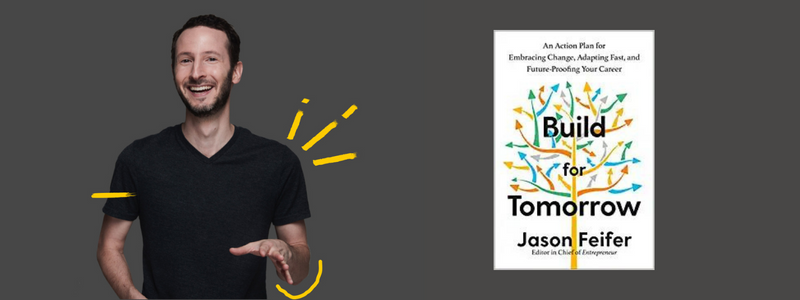A leap forward in AI ethics and safety
July 5, 2024

Jason Feifer: I’ve spent years studying how the most successful people navigate change, because I believe it’s the most important skill that drives success. I came to discover that everyone experiences change in four phases — Panic, Adaptation, New Normal, and Wouldn’t Go Back. That last part is the most important: It’s when we have something so new and valuable that we say, “I wouldn’t want to go back to a time before I had it.”
This is available to all of us; change drives new needs, new opportunities, and new directions. It upends existing power structures and makes way for new ones. But in order to take advantage of this, we must treat it like an opportunity — and not like something to avoid!
I wrote this book now because, with the continuing impact of the pandemic and our uncertain economy, everyone’s lives and careers are changing. And they will continue to change. People need a guide to navigating this uncertainty.
J.F.: I believe that everyone has two sets of opportunities. The first, which I call “Opportunity Set A”, is everything that’s asked of you at your job. The second, which I call “Opportunity Set B”, is everything that’s available to you but that nobody is asking you to do. Maybe it’s joining a new team at work, or maybe it’s developing a new skill outside of work. Now here’s the thing: Opportunity Set B is always more important, because that’s where growth happens! If you only focus on Opportunity Set A, you’ll only be qualified to do the thing you’re already doing.
So that’s how I’ve approached my career. I have never just held one job; I have always been freelancing and developing new skills on the side. That allowed me to start as a small-town newspaper reporter, skip a lot of steps over the years, and end up running a national magazine.
J.F.: I’m very interested to watch what people call “the future of work.” How will work change? Here’s my take: We often believe that new things will replace old things, and that therefore new styles of work (like remote work) will completely replace old ways of working (like being in an office). But I have found that, across time, this does not happen. Instead of replacing old things, we integrate with old things. We take the best of the old, and the best of the new, and we combine them. Work is still evolving right now, and it will continue to. Everything that’s happening now is just the first phase of this grand experiment.
J.F.: Great leaders identify a part of themselves that never changes, even during moments of massive change.
Here’s how they do it:
Most of us identify too closely with the specific work we do. We might say, “I’m a product manager” or “I make a magazine.” But those things are changeable — and when they change, we’ll feel lost. That’s why great leaders go a level deeper: They state a mission for themselves or their company that isn’t easily changed. Maybe their mission is to “bring joy to people through sweet baked goods”, or to “solve the most complex problems with new technology.” I learned to do this myself; I once identified solely as a magazine editor, but now I think, “I tell stories in my own voice.” If I lose my magazine job, for example, I can still accomplish that!
J.F.: Change does not just “happen” to you. You can control it! It is a door you can walk through. There is so much you can do to prepare for it, and then to take advantage of it. So I’m very interested in how people take control, and the ways they think through their greatest changes and challenges. That’s the work I’ll continue to do.
Thank you Jason
Many thanks Bertrand